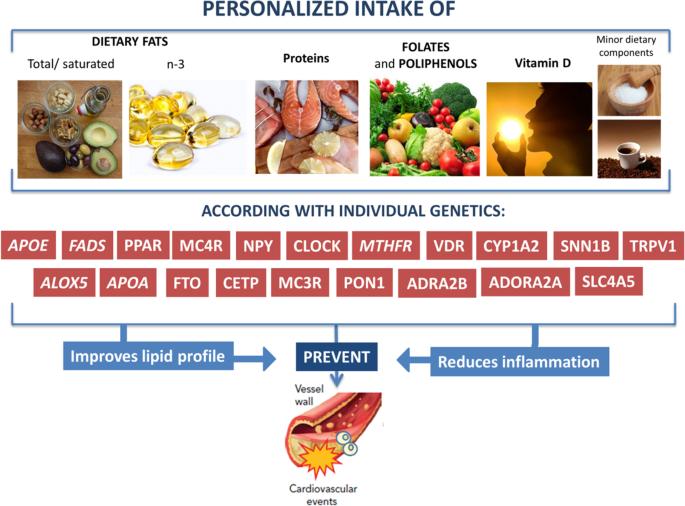Nutrigenetics—personalized nutrition in obesity and cardiovascular diseases
引用次数: 26
Abstract
Epidemiological data support the view that both obesity and cardiovascular diseases (CVD) account for a high proportion of total morbidity and mortality in adults throughout the world. Obesity and CVD have complex interplay mechanisms of genetic and environmental factors, including diet. Nutrition is an environmental factor and it has a predominant and recognizable role in health management and in the prevention of obesity and obesity-related diseases, including CVD. However, there is a marked variation in CVD in patients with obesity and the same dietary pattern. The different genetic polymorphisms could explain this variation, which leads to the emergence of the concept of nutrigenetics. Nutritional genomics or nutrigenetics is the science that studies and characterizes gene variants associated with differential response to specific nutrients and relating this variation to various diseases, such as CVD related to obesity. Thus, the personalized nutrition recommendations, based on the knowledge of an individual’s genetic background, might improve the outcomes of a specific dietary intervention and represent a new dietary approach to improve health, reducing obesity and CVD. Given these premises, it is intuitive to suppose that the elucidation of diet and gene interactions could support more specific and effective dietary interventions in both obesity and CVD prevention through personalized nutrition based on nutrigenetics. This review aims to briefly summarize the role of the most important genes associated with obesity and CVD and to clarify the knowledge about the relation between nutrition and gene expression and the role of the main nutrition-related genes in obesity and CVD.

营养遗传学--肥胖和心血管疾病中的个性化营养
流行病学数据支持这样一种观点,即肥胖和心血管疾病(CVD)在全世界成年人的总发病率和总死亡率中都占有很高的比例。肥胖和心血管疾病有着复杂的遗传和环境因素(包括饮食)相互作用的机制。营养是一种环境因素,在健康管理和预防肥胖及肥胖相关疾病(包括心血管疾病)方面发挥着主导和公认的作用。然而,在相同饮食模式的肥胖症患者中,心血管疾病的发病率存在明显差异。不同的基因多态性可以解释这种差异,这导致了营养基因组学概念的出现。营养基因组学或营养遗传学是一门科学,研究和描述与对特定营养素的不同反应相关的基因变异,并将这种变异与各种疾病(如与肥胖相关的心血管疾病)联系起来。因此,基于个人遗传背景知识的个性化营养建议可能会改善特定膳食干预的效果,是改善健康、减少肥胖和心血管疾病的新膳食方法。有鉴于此,我们可以直观地认为,阐明膳食与基因之间的相互作用,可以通过基于营养遗传学的个性化营养,在预防肥胖和心血管疾病方面采取更具体、更有效的膳食干预措施。本综述旨在简要总结与肥胖和心血管疾病相关的最重要基因的作用,阐明营养与基因表达之间的关系以及主要营养相关基因在肥胖和心血管疾病中的作用。
本文章由计算机程序翻译,如有差异,请以英文原文为准。
求助全文
约1分钟内获得全文
求助全文

 求助内容:
求助内容: 应助结果提醒方式:
应助结果提醒方式:


